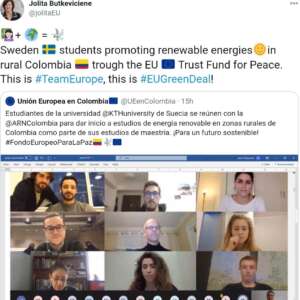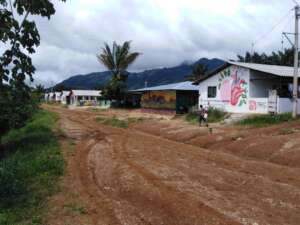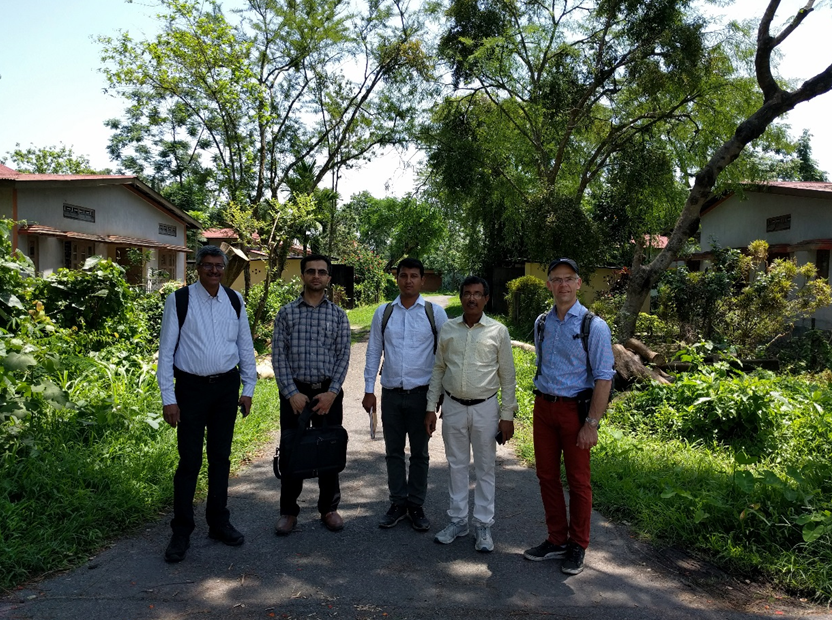Polygeneration
Background
Today the need for decentralized systems producing electricity and clean water is bigger than ever. Advanced centralized power systems are not a solution to the needs for the growing population of the third world. One of the reasons is the lack of reliable distribution systems in these areas. There is a general need for electricity, clean water, cooling and heating gained from renewable sources fulfilling the requirements of sustainability. Well known technology can be combined into decentralized solutions that are sustainable, cost effective, safe and simple.
Aims
The project is motivated by finding a better utilization of primary energy by combining different energy services from one energy conversion system using energy from multiple sources – thus a thermodynamic and economic optimization of energy for useful purposes such as electricity, cooling, heating and clean water. The technical solutions must be appropriate to the targeted market, which puts requirements on the cost as well as on other functions such as simplicity and support.
Approaches
The project has been sub-divided into a large number of work packages that are executed mainly by PhD students and MSc students with guidance from senior researchers and industrial supervisors. The connection to the Select Master’s Program and the Select+ PhD program are important corner stones, where the industrial partners and the academic partners act as the most important sources for preparation and supervision of the student work in “Project of the Year”.
Other important parts are the collaboration with Universidad Central Las Villas, Santa Clara, Cuba in the context of a Linnaeus-Palme teacher/researcher and student exchange program. In this program, students on exchange get to know the energy system and challenges of “the other” country. Another collaboration that is of importance is a SIDA-supported sandwich doctorate program between our research group and Universidad Mayor de San Simon, Cochabamba, Bolivia. In the eastward direction, the research group is engaged in a polygeneration system for Tezpur University in the Assam region of India. That project aims to integrate generation of multiple energy services from leftovers from tea production and harvesting with electricity from solar panels.
A new application of the research was established during 2020: The peace process in Colimbia with the former FARC-guerilla has among else resulted in a number of new villages for former combatants and their families. The Polygeneration project supports the governmental organization ARN (Agency for Reincorporation and Normalization) with studies and recommendation how the energy systems of those villages can be build and configured for sustainability in terms of environment, economy and social life.
Keywords
Membrane dedtillation, Polygeneration, Biogas, MicroCHP, Microturbine, Stirling engine, Thermal Energy Storage, Phase Change Materials, PCM, Concentrated Solar Power, CSP
Project leader
Assoc. Prof. Anders Malmquist, KTH
Other project members
Prof. Andrew Martin, KTH
Prof. Björn Laumert, KTH
Dr. Idaelberto Herrerra Moya, Universidad de Las Villas, Santa Clara, Cuba
Dr. Lucio Alejo, Universidad Mayor de San Simon, Cochabamba, Bolivia
Dr. Debendra C Baruah, Tezpur University, India
Links and references
Link to the webpage ”Research at Energy Technology” at KTH
Link to the homepage of the Concentrating Solar Power and Techno-Economic Analysis group, KTH
Additional funding (apart from StandUp for Energy)
The project is carried out in cooperation with projects supported by the Linnaeus-Palme exchange program, SIDA and KIC InnoEnergy.

Workgroup meeting with officials in Colomba and students of KTHi on energy systems for peace villages for former FARC guerilla members

The Bolivian part of the research team in front of the Micro Gas Turbine (PhD student Luis Choque, Dr. Evelyn Cardoza, Prof. Dr. Lucio Alejo, PhD student Rodrigo Rocha, Dr. Anders Malmquist (KTH), Dr. Adhemar Araoz.





